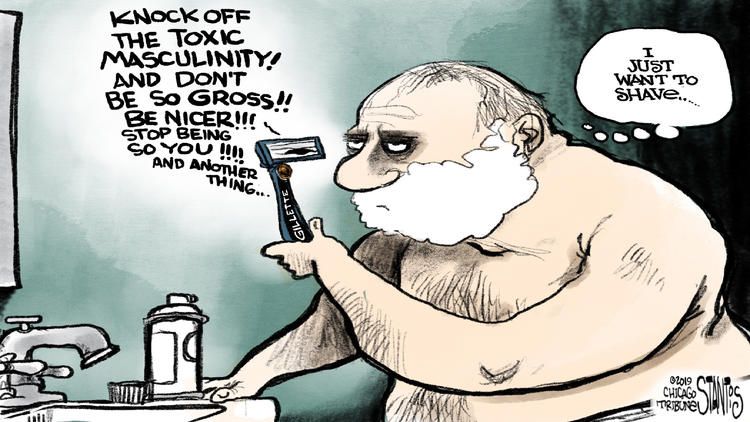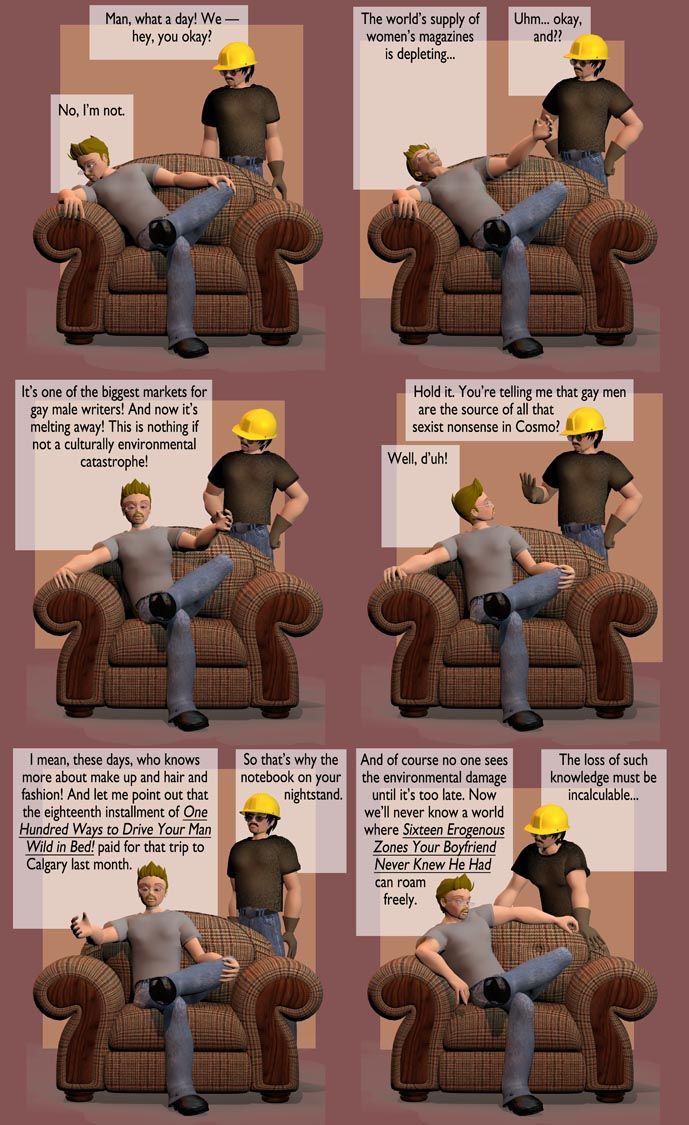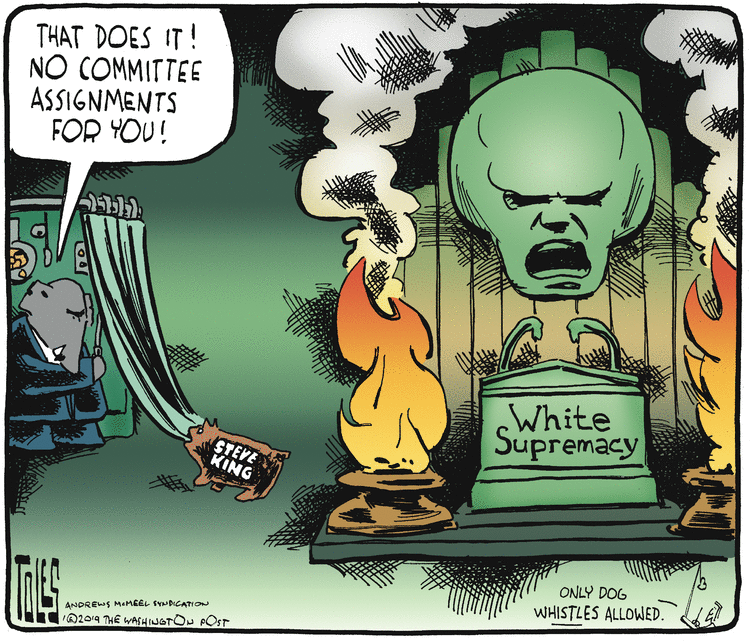CSotD: No good deed goes unpunished
Skip to commentsI’ll let today’s Candorville set the tone, because it’s the most self-critical of today’s batch of cartoons, plus I’m always pleased whenever Clyde becomes the voice of reason.
It did seem, at first, that Jazmine Barnes had been the victim of a random, race-based drive-by shooting and there was a lot of outrage over the concept. Turned out her family drove a car similar to one driven by a drug dealer in an argument with another.
But the bottom line, as Clyde says, is that a little girl died.
Which was pretty much what DeAndre Hopkins had to say when he donated his game check from the Texans/Colts playoff game to the Barnes family for funeral expenses.
I don’t know why anything has to be more cosmic than that. I’m sure that Jazmine’s family doesn’t much care why she’s gone.
While we’re talking about Clemson athletes — Hopkins being an alum — a little clean-up on the hamberder issue.
There will be all sorts of cartoons about the event, but I like Nick Anderson‘s take because it’s understated. We’ve got a guy in the office who has no class, and that’s not a rap on the blue-collar people he purports to represent.
But even Nixon — who was on the football team at Whittier, though only barely — would have known that, as I said yesterday and as this article confirms, top athletes don’t eat fast food except maybe as an occasional treat.
Lincoln is only one of several presidents with a lowly background but a sharp sense of empathy, Trump being pretty much the reverse.
Anderson’s commentary is about “class” in the sense of character, not the raising-your-pinkie economic sense.
I grew up with friends who didn’t have telephones or central heating but who had plenty of the kind of class that matters, and that Trump lacks.
Which brings us to the latest Internet kerfuffle, a Gillette commercial encouraging young men to set a better example, here criticized by Scott Stantis.
I’m not insensitive to the feeling that all men are being targeted as sexist pigs, mostly because there is a loud, faux-feminist minority who do just that.
But, in his commentary, Stantis criticizes the commercial for “implying ALL men are just awful bullying misogynists,” and I think he needs to watch it again.
The commercial is scrupulous in establishing that good men are being encouraged to step forward, acknowledging that they exist but saying that they need to be more active in the struggle.
I feel good about my own bona fides but I’m not sure what I can do beyond setting a good example and occasionally stepping forward for small things, as the fellows in the commercial are encouraged to do.
But, judging from the reaction, there’s no way Gillette could have taken a stand that would hold up among the True Believers.
This Vox article explains it at length, a main point being — go read it yourself, because I can’t make this shit up — that Gillette is a profit-making company and therefore has no right to promote feminist ideas, so that
This is an advertisement set to air during a football game on primetime television, and within those constraints, it can absolutely not depict — in a convincing way — the complex and never-ending story it seeks to profit from.
I’m not sure what “constraints” there are in modeling positive behavior in front of a massive audience of men, but I guess if you can’t achieve everything, it’s best to just leave it all just as it is.
The perfect being, once more, the enemy of the good.
I caught a little hell on line yesterday for linking to an article about the demise of women’s magazines, though it caught Sean Stephane Martin’s eye, who then penned this Doc & Raider.
I dunno about Cosmo, which seemed pretty retrograde even half a century ago, but I learned a lot from Mademoiselle and Glamour, to which my then-wife — a college stringer for the former — subscribed in the 70s.
Women’s magazines promote insecurity about body image, but the better ones — at least when I was seeing them — also had articles promoting just the opposite and championing early feminism.
Today, my response to those “How to Enhance Your Lover’s Orgasm” articles I see in grocery checkout lines is pretty much identical to my response to the Bat Baby and UFO stories alongside them: “Who buys this delusional crap?”
Well, if Doc and Raider are right, we might have to have fundraisers for gay writers.
But we’re up to the second sequel to “Fifty Shades of Masochistic Bullshit,” so perhaps the situation is not quite so dire.
It’s too early to write the final report on Steve King, Iowa’s prehistoric racist representative, though Tom Toles draws a nice, if familiar, parallel to undercut the Republican response.
It’s not like the Republicans didn’t know they had this toxic troglodyte within their ranks, and I’d agree with Toles that King was simply more outfront about his prejudices than the official party line.
(That marginal wisecrack is brilliantly spot-on.)
I think there are two paths yet to be explored:
One is to see if the GOP goes further than stripping him of committees. There is pressure to do more, including expel him. Let’s see how that goes.
The other is to see if the young activists in the new Congress prove less amenable to business-as-usual toxicity. Is King only the first to be outed? This could get ugly, but it could also get constructive.
We’ll see.
Finally, among the cartoons not seen today are Steve Kelley’s childishly sexist panels (covered elsewhere), and the outlandishly dishonest attempts to portray a long-planned examination of Puerto Rico’s recovery from Hurricane Maria as a Democratic junket.
The latter raises the classic question, “Is he a fool or a knave?” since some lazy cartoonists are notorious for simply illustrating unexamined partisan talking points, while others seem more deliberate in misrepresenting things.
Which wouldn’t matter quite so much if Dear Leader weren’t threatening to divert hurricane relief into his fatuous Wall project.






Comments 3
Comments are closed.